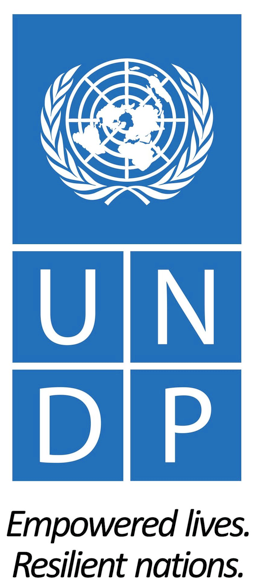
Apia, Samoa 2 September - Sustainable development is vital for Small Island Developing States to help reduce poverty, promote human development, and build resilience, says a new publication produced jointly by the UNDP and the Global Environment Facility (GEF).
The publication titled: Island Innovations – UNDP and GEF: Leveraging the Environment for the Sustainable Development of Small Island Developing States, showcases outstanding results from a series of environment and sustainable development projects from Small Island States across the world.
It was launched today by UNDP administrator Helen Clark, and Naoko Ishii, CEO of the GEF, at the Third International Conference on Small Island Developing States. The conference is being held in Apia, Samoa from 1-4 September.
“Small Island Developing States need to pursue sustainable development actively, as the longer we wait, the higher the risks and the costs", said Helen Clark. “At stake are human development, threats to the survival of species, and the very existence of some small island states.”
Since Small Island States are more prone to environmental disasters such as cyclones, hurricanes, sea level rise and floods, the UNDP-GEF portfolio provides extensive policy and programmatic support to achieve multiple development benefits.
“Nowhere is a healthy environment and prospects for growth and prosperity linked as closely as in Small Island Developing States”, said Naoko Ishii, “The GEF is committed to build lasting partnerships with the Small Island Developing States and will be backing these with record funding of more than $250 million over the next four years”.
The publication highlights 17 case studies of local, national and regional projects under implementation covering ecosystems and biodiversity, land degradation, climate change adaptation, energy efficiency, gender equality, trade, and other key sectors.
Currently, the portfolio of UNDP-supported and GEF-funded projects and activities in Small Island States includes:
- Over US$555 million in grants from the GEF Trust Fund, Least Developed Country Fund (LDCF), Special Climate Change Fund (SCCF) and the Adaptation Fund (AF)
- More than US$1.4 billion in co-finance from governments and other partners
- A total of US$67 million in grants and US$84 million in co-finance from the Global Environment Facility Small Grants Programme (GEF SGP), for over 2,500 projects implemented by UNDP
- Funding from multilateral and bilateral donors, including significant support from the Government of Japan, for environmental and energy projects being implemented by the UNDP
The volume of work reflects the importance of supporting and promoting environmentally focused sustainable development work to bring about transformative change in small island states. The examples highlighted in the publication show that these states are models for piloting global sustainable development solutions. Their size allows important investments that are achieving tangible results in people’s lives. Many projects are examples of interventions that can be replicated in larger countries. Just as the local issues faced by small island communities have global implications, the impacts of these projects in small island states have global importance.
***
About the GEF
The Global Environment Facility is a partnership for international cooperation where 183 countries work together with international institutions, civil society organizations and the private sector, to address global environmental issues. The GEF serves as financial mechanism for the United Nations Framework Convention on Climate Change, the Convention on Biological Diversity, the United Nations Convention to Combat Desertification, the Stockholm Convention on Persistent Organic Pollutants and the Minamata Convention on Mercury. It also works closely with the Montreal Protocol on Ozone Depleting Substances.
Since 1991, the GEF has provided $12.5 billion in grants and leveraged $58 billion in co-financing for 3,690 projects in 165 developing countries. For 23 years, developed and developing countries alike have provided these funds to support activities related to biodiversity, climate change, international waters, land degradation, and chemicals and waste in the context of development projects and programs. Through its Small Grants Programme (SGP) the GEF has made more than 20,000 grants to civil society and community based organizations for a total of $1 billion.
Among the major results of these investments, the GEF has set up protected areas around the world equal roughly to the area of Brazil; reduced carbon emissions by 2.3 billion tonnes; eliminated the use of ozone depleting substances in Central and Eastern Europe and Central Asia; transformed the management of 33 major river basins and one-third of the world’s large marine ecosystems; slowed the advance of desertification in Africa by improving agricultural practices—and all this while contributing to better the livelihood and food security of millions of people.
Stay Connected
- www.facebook.com/thegef1
- www.twitter.com/theGEF
- www.youtube.com/GEFSecretariat
- www.flickr.com/theGEF
- www.thegef.org/gef/gefrss
- www.issuu.com/thegef
- www.linkedin.com/company/global-environment-facility
***
Media Contacts:
For UNDP
In Apia, Samoa: Lisa Garvey - lisa.garvey@undp.org; + 685 7726033
In New York City, USA: Dylan Lowthian - dylan.lowthian@undp.org + 1 212 906 5516
For the GEF
In Washington DC, USA: Christian Hofer - chofer@thegef.org+1 202 458 0936